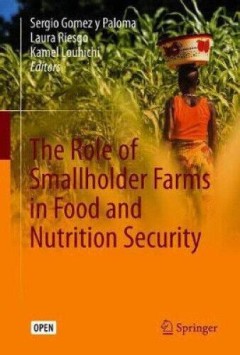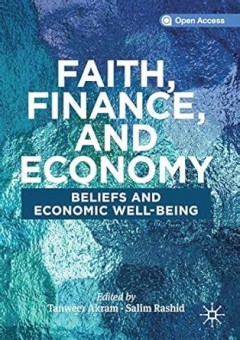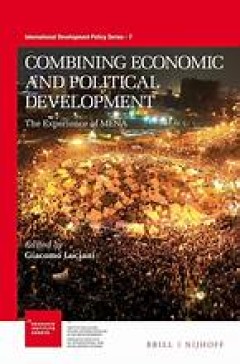Filter by

Akademische Subjektivierung im Dispositiv neoliberaler Gouvernementalität
In diesem Open-Access Buch wird die Transformation von traditionellen zu unternehmerischen Hochschulen unter einer neoliberalen Wissens- und Identitätspolitik untersucht. Vor dem Hintergrund einer Ökonomisierung der Gesellschaft geraten deutsche Hochschulen und ihre Angehörigen ab den 1990er Jahren zunehmend unter Druck, sich unternehmerisch-manageriale Denk- und Handlungsweisen anzueignen, …
- Edition
- 1
- ISBN/ISSN
- 9783658427474
- Collation
- XV, 351 hlm; ill., lamp.,
- Series Title
- -
- Call Number
- -

A Millennial View of Spain’s Development = Essays in Economic History
This open access book presents the evolution of the Spanish economy over the past seven centuries since the end of the Reconquest and examines how much economic progress has Spain achieved, as well as its impact on living standards and income distribution over the very long run. It shows that preindustrial Spain was far from stagnant, although levels of output per head in the early nineteenth c…
- Edition
- 1
- ISBN/ISSN
- 9783031607929
- Collation
- XXXII, 375 hlm; ill., lamp.,
- Series Title
- -
- Call Number
- -

The Role of Smallholder Farms in Food and Nutrition Security
This open access book discusses the current role of smallholders in connection with food security and poverty reduction in developing countries. It addresses the opportunities they enjoy, and the constraints they face, by analysing the availability, access to and utilization of production factors. Due to the relevance of smallholder farms, enhancing their production capacities and economic and …
- Edition
- 1
- ISBN/ISSN
- 9783030421489
- Collation
- XI, 251 hlm; ill., lamp.,
- Series Title
- -
- Call Number
- -

Faith, Finance, and Economy = Beliefs and Economic Well-Being
This open access book seeks to foster a multidisciplinary understanding of the ties between faith, financial intermediation, and economic progress by drawing on research across economics, finance, history, philosophy, ethics, theology, public policy, law, and other disciplines. Chapters in this edited volume examine themes as consequential as economic opportunities, real world outcomes and fait…
- Edition
- 1
- ISBN/ISSN
- 9783030387846
- Collation
- XI, 239 hlm; ill., lamp.,
- Series Title
- -
- Call Number
- -

Combining Economic and Political Development
Since 2011, democratic transitions in the Middle East and North Africa have mostly failed to consolidate and have been hindered by the difficult economic heritage of previous authoritarian governments. Yet newly established democratic governments must deliver on the expectations of their people, especially the poorer strata, otherwise disillusionment may open the door to restoration of authorit…
- Edition
- -
- ISBN/ISSN
- 978-90-04-33644-5
- Collation
- -
- Series Title
- International Development Policy, Volume: 7
- Call Number
- -

Hot Property = The Housing Market in Major Cities
Dr. Rob Nijskens Rob is an economist in the Financial Stability Division of DNB since 2012, specializing in analyzing financial stability risks in commercial and residential real estate markets. Together with Melanie Lohuis and Willem Heeringa he authored the 2017 DNB Occasional Study “The housing market in major Dutch cities”. He has also written extensively on commercial real estate, bot…
- Edition
- 1
- ISBN/ISSN
- 9783030116743
- Collation
- XVI, 221 ill; lamp
- Series Title
- -
- Call Number
- -

Development in Turbulent Times = The Many Faces of Inequality Within Europe
This open access book explores the most recent trends in the EU in terms of development, progress, and performance. Ten years after the 2008 economic crisis, and amidst a digital revolution that is intensifying the development race, the European Union, and especially Central and Eastern Europe, are ardently searching for their development priorities. Against this background, by relying on a cr…
- Edition
- 1
- ISBN/ISSN
- 9783030113612
- Collation
- VIII, 197 ill; lamp
- Series Title
- -
- Call Number
- -

Modernization with Chinese Characteristics and Great Power
This open access book expounds in detail on the profound meaning and main characteristics of modernization with Chinese characteristics. This was done utilizing tools of historical investigation and fact-based research on the modernization of New China. The author provides a far-reaching outlook of the strategic goals and future trends of modernization with Chinese characteristics. In this book…
- Edition
- 1
- ISBN/ISSN
- 9789819933976
- Collation
- VI, 201 hlm; ill., lamp.,
- Series Title
- -
- Call Number
- -

Study on the National Conditions of Modernization with Chinese Characteristics
Based on the analysis of China’s basic national conditions and development trends, this book begins with a general introduction to the study of “modernization with Chinese characteristics,” and then discusses the comprehensive construction of a prosperous society in all respects, unprecedented changes, the new national system, green modernization, and technological modernization. In addit…
- Edition
- 1
- ISBN/ISSN
- 9789819774470
- Collation
- XVI, 364 hlm; ill., lamp.,
- Series Title
- -
- Call Number
- -

Advances in Pharma Business Management and Research
This open access book presents a unique collection of practical examples from the field of pharma business management and research. It covers a wide range of topics such as: 'Brexit and its Impact on pharmaceutical Law - Implications for Global Pharma Companies', 'Implementation of Measures and Sustainable Actions to Improve Employee's Engagement', 'Global Medical Clinical and Regulatory Affair…
- Edition
- 1
- ISBN/ISSN
- 9783030359188
- Collation
- X, 85 hlm; ill., lamp.,
- Series Title
- -
- Call Number
- -
 Computer Science, Information & General Works
Computer Science, Information & General Works  Philosophy & Psychology
Philosophy & Psychology  Religion
Religion  Social Sciences
Social Sciences  Language
Language  Pure Science
Pure Science  Applied Sciences
Applied Sciences  Art & Recreation
Art & Recreation  Literature
Literature  History & Geography
History & Geography